Children are Mentored in Meaningful Service Projects
Mentoring children of all ages around the world is a meaningful assignment for volunteers from all backgrounds. Drawing on their own experiences and compassion, volunteers can make a significant difference in the lives of youth in as little as one or two weeks. Read on to learn how volunteers of diverse backgrounds and life experiences nurture and mentor children of diverse circumstances.
In a perfect world, all children are cared for by loving parents who provide an excellent education, a secure home life and guidance throughout their formative years. But this ideal scenario is not the norm in developing countries, where many parents struggle to feed their families and have little time left for nurturing and psycho-social support. In order to compensate, some parents give up their children to private or government homes to meet these basic needs. Volunteers help bridge the gap in services by providing youth the care, love, encouragement, education, and hope they need to thrive.
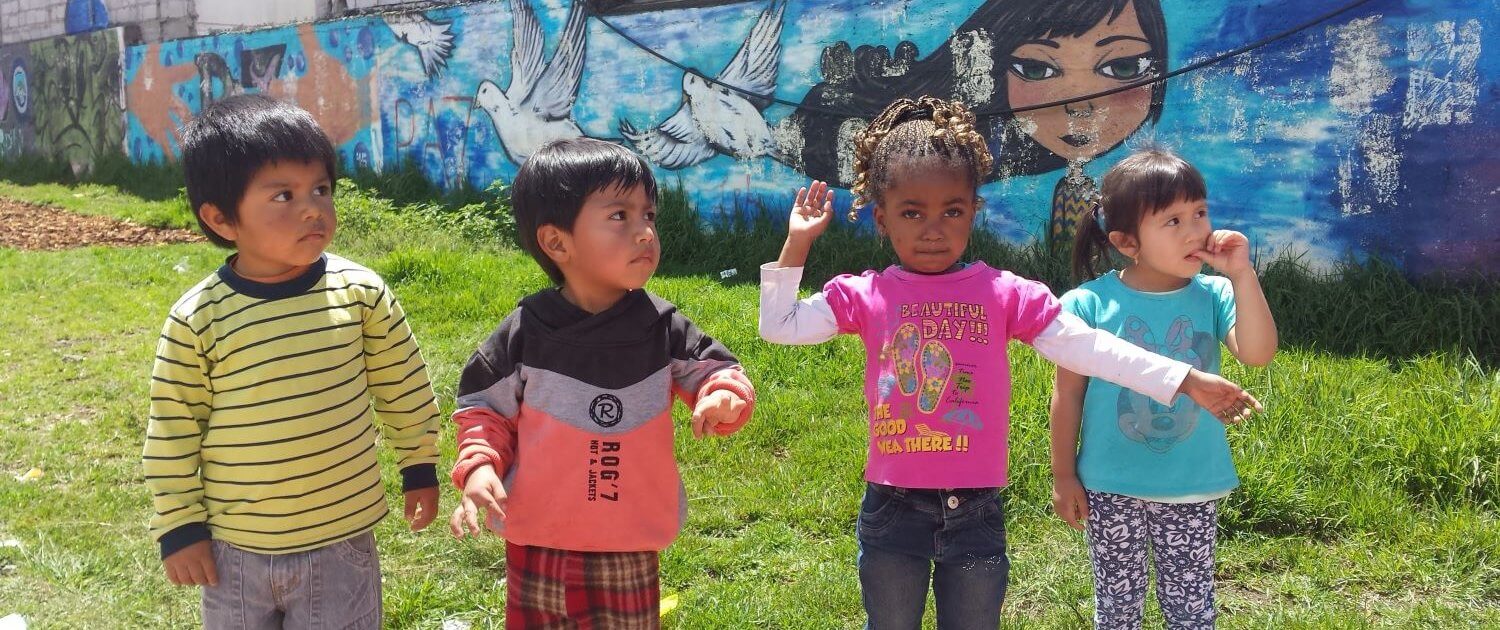
In the cases where parents are not present or are unable to care for their children, these institutions are the only source of nurturing, affection, support, social interaction, recreation, and mentoring that the children receive. Global Volunteers’ partners strive to provide basic psycho-social, educational, and security needs of children in various communities around the world.
Mentoring Children in Peru
The Sagrada Familia Community in Peru houses and educates about 250 at-risk children whose parents are either not present or unable to care for them. Miguel Rodriguez, the psychologist who founded and directs Sagrada Familia speaks about the role Sagrada Familia plays in mentoring these children: “At Sagrada Familia we understand the need to mentor children, that is, to give them guidance and protection. Each child in the community is unique and requires attention, guidance, and the fulfillment of needs considering all aspects of their well-being. As an institution, our principles demand that we provide care, protection, and education with values to each child at our home.”
Peru volunteers interact with the resident children daily – offering guidance, counseling them on life skills, and teaching conversational English skills. Many Sagrada Familia teens and “graduates” cite Global Volunteers team members as influential in helping them build self-confidence, learn new skills, and aspire to give charitably to others who have less than they do.
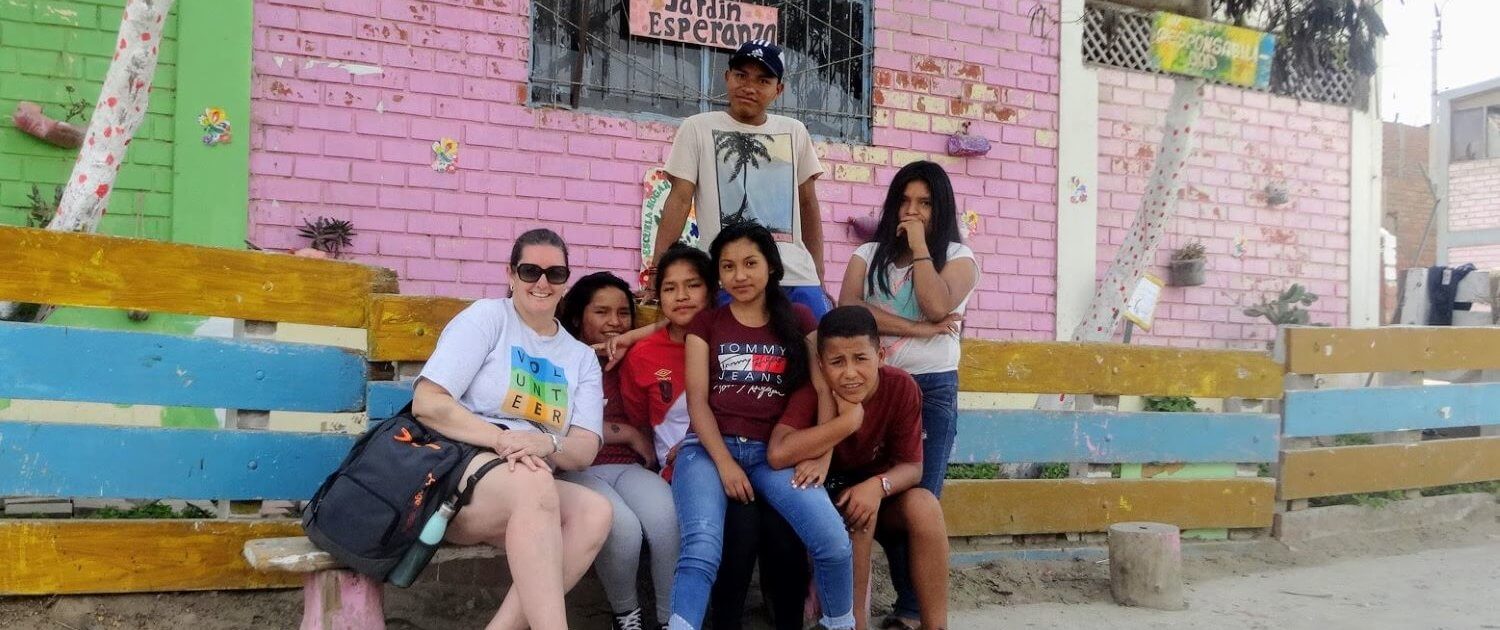
Mentoring Children in Ecuador
In Ecuador, our community partner, FUNDAC, serves children from impoverished families in a district of Quito. At two early childhood development centers, vulnerable pre-schoolers receive care, attention, meals and guidance. “They receive healthy food, good treatment and their development is comprehensive,” says Alexandra Rosero, an educator who works at one of the centers. “The boys and girls who attend the nursery develop a more fluent language and have more social interaction when being in contact with other children and adults. In addition, their independence and autonomy are strengthened, for example, they learn to eat alone, dress and undress and go to the bathroom alone, so this is of great help when they go to kindergarten because most attend public institutions that fail to provide personalized attention.”
Alexandra says volunteers are very helpful in mentoring the centers’ children at a formative time in their lives. “Since each of the volunteers show their affection and dedication towards the little ones, they help to improve the conditions of our children’s center where boys, girls, parents, community members and educational personnel interact. Their presence promotes a cultural and social exchange between all parties.”
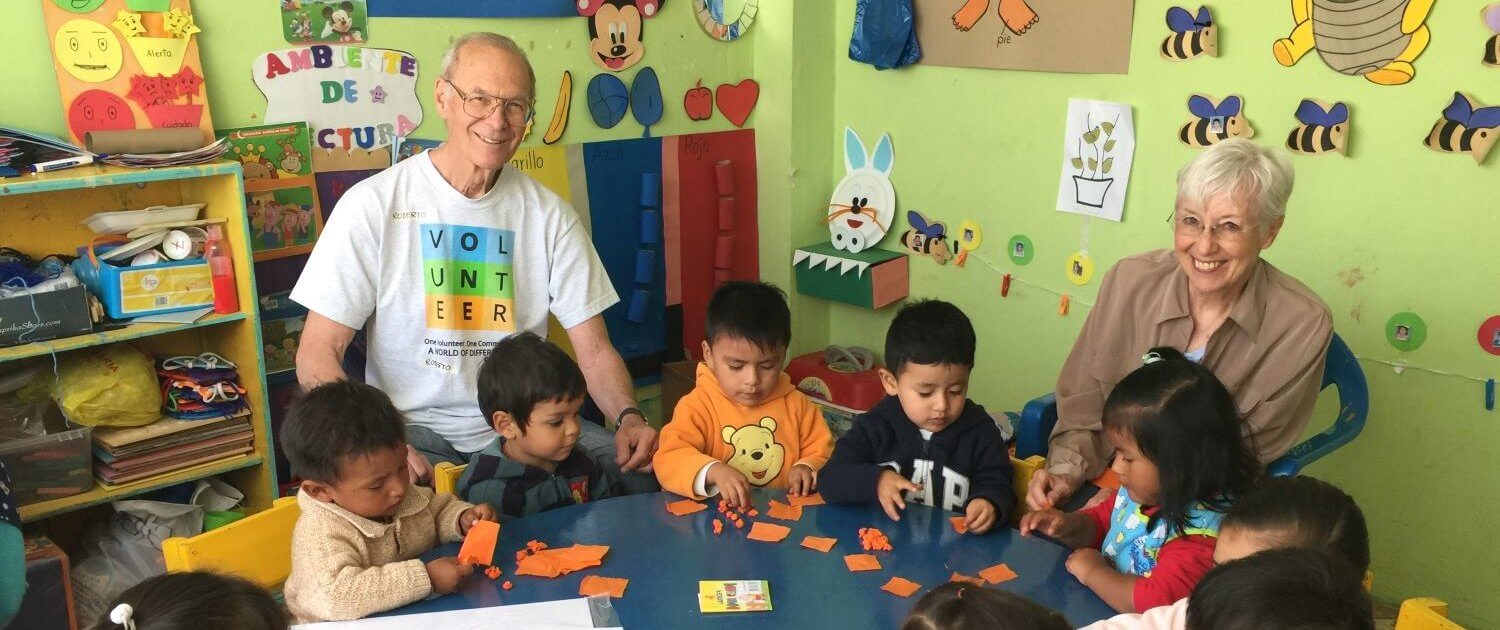
The “Irreplaceable Contributions”
FUNDAC President Yolanda Galarza claims the volunteers’ greatest contributions are understanding and love. “We have always observe how children feel when they are with volunteers – happy and more engaged. The help that the children and our centers receive is invaluable, and we feel flattered, happy to receive the volunteers.”
Similarly, Miguel says the volunteers are irreplaceable role models. “Their role is very important, especially in the educational field as well as the development of values. They are examples of solidarity, respect, and tolerance. Their accompaniment is essential in the development of each minor.” The love, education, and example volunteers provide to children is not only beneficial to children from developing countries. Children in developed countries also need mentoring.”
Greece Country Manager Sam Pinakoulaki describes the importance of volunteers’ mentoring in English for children from refugee or low-income families in Crete: “For many of the children we work with in Crete, the chance to be mentored by Global Volunteers is priceless. It’s especially crucial for the students of refugee families or low-income families, who would probably not have an opportunity to learn English without the mentoring of Global Volunteers either during the spring and autumn programs or the summer school program. In most of the cases mentioned above, parents cannot help their children with their English studies because basically, they speak no English, so they are always forever grateful to Global Volunteers. Volunteers also help English teachers by assisting the “slower” learners with one-on-one tuition, encouraging them to “catch up,” and giving them ideas to study independently at home.”
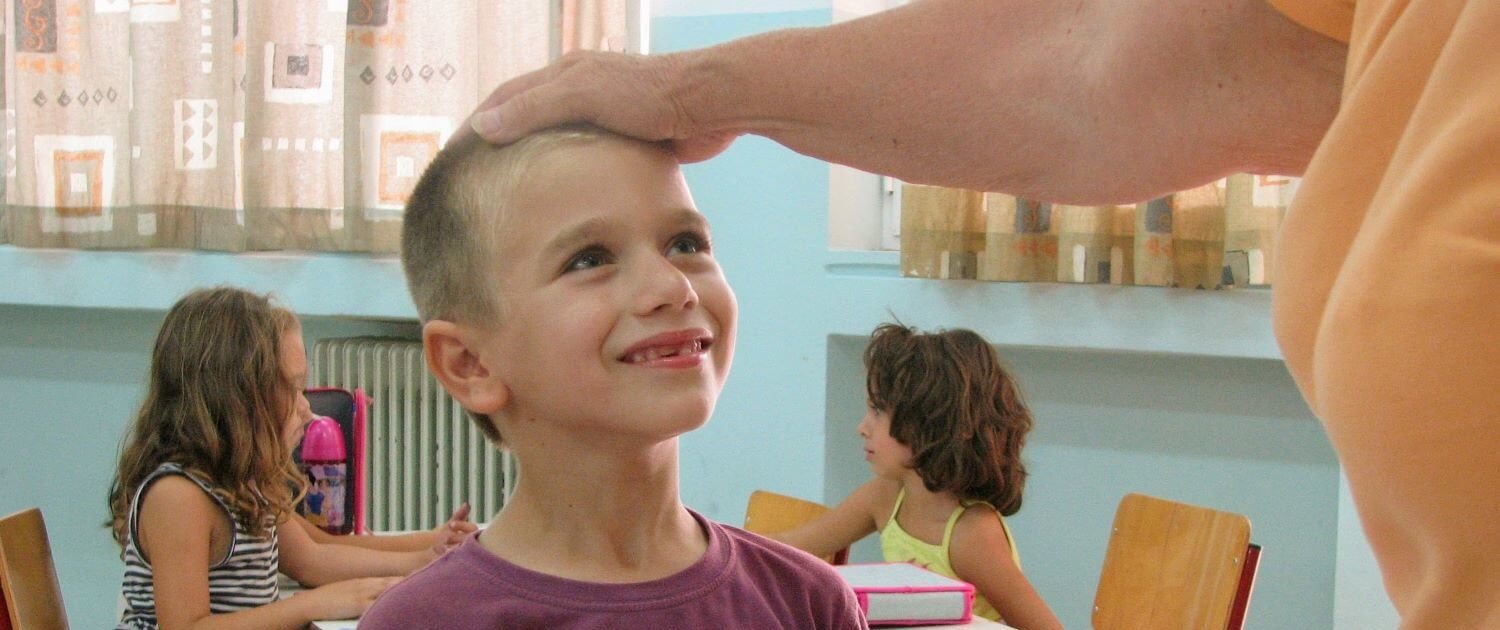
Never Doubt Your Impact
By example, Sam shared the story of Michalis, a twelve-year-old boy from Malevizi whose parents were killed in a car accident when he was five. The impact volunteers made in his life was invaluable…but unpredictable. “He first came to the Global Volunteers summer school in 2015,” Sam said, “and to be honest with you, was quite a handful, being both withdrawn and disagreeable. And each day, he’d come to class wearing the same clothes.” One day, his grandmother asked if I thought the Global Volunteers team could think of any way to motivate Michalis to change his behavior – and his clothes.
The volunteers were eager to help, and brainstormed ideas during an evening meeting. “We decided to ask his class to focus on a specific color every day—one day, blue, red, etc.,” Sam explained. “The kids had to come in dressed with those colors. We thought it would influence Michalis to think more about his appearance and get him involved in the team project. It worked slowly, and he started to change his clothes.”
“Then on a later summer school team, a volunteer asked if she could spend some one-on-one time with him to see if this would improve his behavior,” Sam continued. “He had difficulty focusing in the classroom, and she had noticed that his penmanship was also way behind that of his classmates. She spent ten days, 30 minutes a day, teaching him how to hold his pencil and going through the ABC’s, etc. He enjoyed this extra attention and started to behave in class,” she said.
Now five years later, Michalis’ grandmother reports his schoolwork has improved, and he’s excelling in English. “Plus, Sam concluded, “he’s always the first student to sign up for the Global Volunteers summer school!”
Michalis and many thousands of children have benefited from the psycho-social support and compassionate mentoring of Global Volunteers teams. Regardless of where they live or their circumstances, children and teens deserve love, care, attention, and education. Never doubt the significant positive impact you can have in a child’s life. We’re inspired to sustain our long-term partnerships – even during the most difficult times – to continue this work, and to invite you to join us as soon as it’s safe to resume our service programs in 2021.
You may also like:

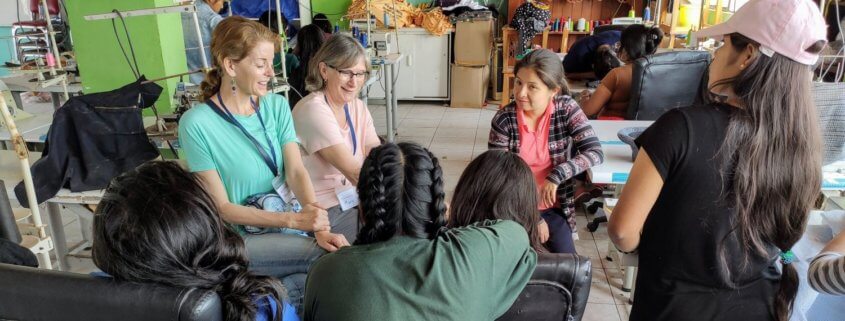


Leave a Reply
Want to join the discussion?Feel free to contribute!